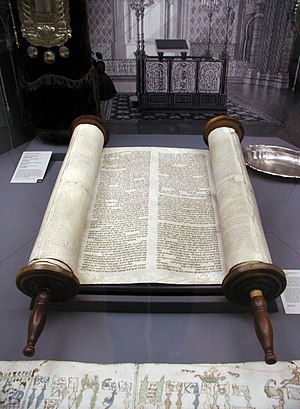
Both Herodotus‘ History and Primary History (Genesis to 2 Kings)
- are national epics
- had been divided into nine books at some time in their history
- are both about the same length
- begin with a prehistory that includes myths, fables, folk-tales, and legends that are treated as factual
- and continue in this vein until well into historical time
- consist of a basic format that changes concomitantly and abruptly under similar circumstances:
- in Herodotus’ History this happens when Persians are about to fight on the Greek mainland
- in Primary History this happens when the Sons of Israel are about to enter the Promised Land
- take on a semblance of historical narrative once the “homeland” becomes the locus of action
- — albeit one that includes miracles, marvels, and divinities who act in or at least guide history
- think of historic causation as being intimately tied to the will of the divinity
This is from the preface (p. x) to The Relationship Between Herodotus’ History and Primary History by Sara Mandell and David Noel Freedman, 1993.
There’s much more. But this is just for starters to justify my previous post’s speaking of Herodotus and the Bible’s core historical narrative in the same breath.
If you enjoyed this post, please consider donating to Vridar. Thanks!

It is one-sided to set Judaistic and Hellenistic thought against each other. Both developed within a very long lasting matrix of tradtions of story telling and speculation in the Near East,Mesopotamia, Egypt, Anatolia, and Greece. Greek ideas of providential history, the spin that a king could be shepherd and savior of the people, speculation on heavenly wisdom, is common to much Greek thought and to the historical and wisdom genres of the Bible. Later the question of how to live a life os some authenticity against the reality of overwhelming power, to gain life by losing it, not the question posed to Achilles but a more profound question, is common to all the great religions and to Greek and Hellenistic philosophies. There is a continual dialogue between Judaism and Hellenism. The genealogical outline of history is also very Greek.
Largely agree. The supposed contrasts have been wrongly assessed in the past. Mandell and Freedman (who are by no means fringe-dwellers, by the way) also consider the likelihood of Ezra and Herodotus working in a very similar intellectual climate and with shared opinions, given their high social status and living within the world of Persian domination.
Basically where I’m leading with these posts is that once we see the way Herodotus has created a fictional novel of sorts, although with a mix of borrowings from various genres like epics, tragedy, poetry, and see how he has taken fiction and “theology” to create a work that reads like history, and has persuaded many that it really is history, then we can see more clearly the nature of the Primary History — and by extension, I will argue, some of the Gospels.